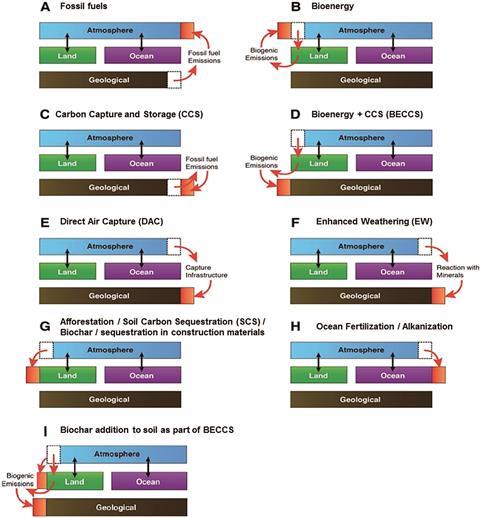With 2016 set to become the warmest year on record, global warming has never been more prominent in the news. Researchers have found that scientifically viable carbon capture and reduction technologies could reduce the UK’s carbon footprint by 8–32%.
This year the UK signed up to the Paris climate agreement, which aims to limit global temperature increases to below 2°C compared with pre-industrial temperatures. One way to start meeting this agreement is for the UK to aim for net zero CO2 emissions through the use of negative emissions technologies (NETs) – these include methods to capture CO2 either directly from the air of before it is released from fossil fuel emissions, planting trees and creating forests, accelerating natural geological weathering to remove CO2 from the atmosphere, changing agricultural practices and land use, and binding CO2 in the form of biochar.

Carbon dioxide flows among atmospheric, land, ocean and geological reservoirs for different negative emission technologies. Source: © Royal Society of Chemistry
Pete Smith, from the University of Aberdeen, UK, and colleagues have assessed the impact that UK-based NETs could have on reducing the country’s CO2emission levels. Smith’s team discovered that if the UK implemented all possible NETs, regardless of their technical viability, it would reduce current emissions by 8–32%. However, the actual proportion of this potential that can be realised might be smaller than this; factors such as cost, energy requirements, environmental impact and public acceptance will all affect these technologies’ viability.
Read the full article in Chemistry World.










